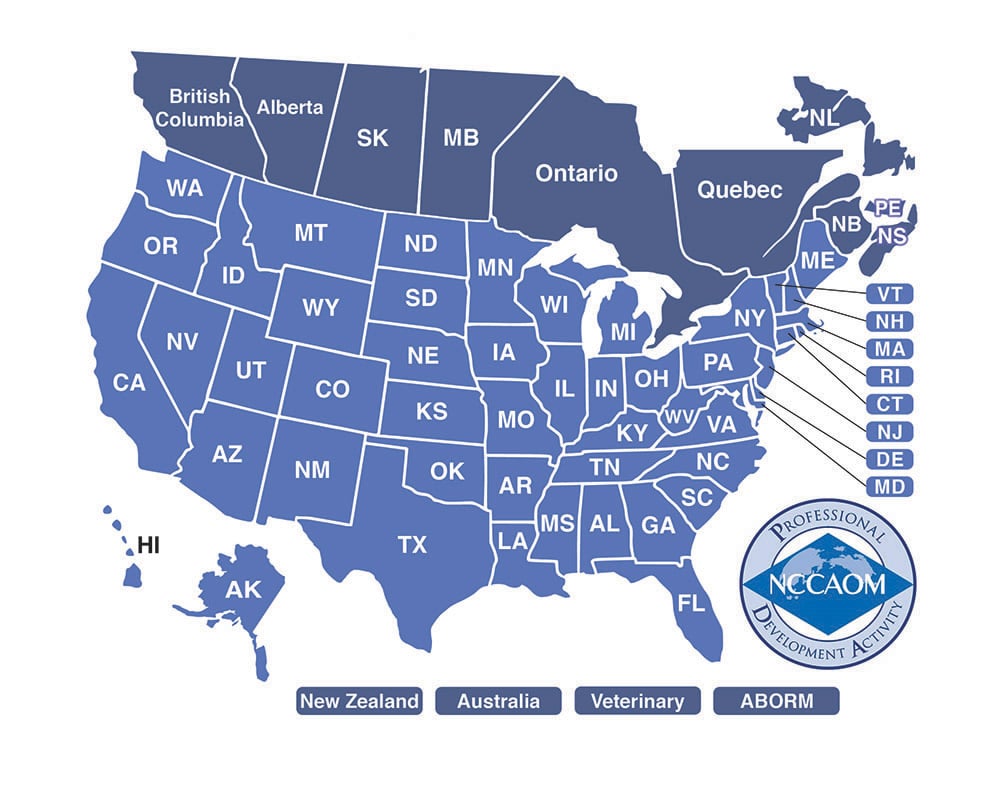Ethics in Acupuncture: Excerpts...
Sample of Course Materials

The following are samples from the online course Ethics in Acupuncture:
Medical Ethics
Ethics are moral principles that act as guidelines for behavior. They act as a guiding philosophy, impart moral importance and help discern right from wrong. Although ethics correlate to legality, ethical obligations are often greater than what is legally required. Conversely, simply because something is legal does not necessarily make it ethical. The following is an excerpt from the American Medical Association’s website on the topic of the relation of law and ethics:
Ethical values and legal principles are usually closely related, but ethical obligations typically exceed legal duties. In some cases, the law mandates unethical conduct. In general, when physicians believe a law is unjust, they should work to change the law. In exceptional circumstances of unjust laws, ethical responsibilities should supersede legal obligations.
The fact that a physician charged with allegedly illegal conduct is acquitted or exonerated in civil or criminal proceedings does not necessarily mean that the physician acted ethically.
While it is ethical to practice acupuncture, it is not legal to practice it in many jurisdictions and settings. Likewise, there are acupuncture procedures that are ethical to perform but lack legal …
More in course materials…
Patient Referral Signs
The acupuncturist can use clarifying questions to help decide when to refer a patient. However, the best measure an acupuncturist can take is to actively monitor patients for medical red flags. Some referral situations include:
- Sudden chest pain (coronary occlusion, pneumothorax, or aneurysm)
- Excessive hemorrhaging (shock risk)
- Recent head trauma (concussion, brain injuries)
- Persistent cough (pleural effusion, lung cancer)
- Severe abdominal pains (appendicitis, ruptured abscess)
- Gastro-intestinal bleeding from upper or lower GI tract
- New onset of severe headache (aneurysms, brain tumor)...
More in course materials…
Billing
Balance Due
What happens when your patient has an acupuncture office visit bill and states that they cannot pay?
Legally, the patient is obligated to pay but ethically an acupuncturist benefits by remaining sympathetic to the patient’s situation by carefully listening to the patient’s explanation. A solution may be to provide a payment plan via credit card, installment payments, or financing. Providing options may avoid…
More in course materials…
Misrouted Insurance Check
What happens when an insurance company mistakenly pays the patient directly when the acupuncturist should have received the check?
Never allow the insurance company to create anger or distrust between the acupuncturist and the patient. One option is to contact the patient and have them sign the check over to the licensed acupuncturist to whom the balance is rightfully due. Alternately, contact the…
More in course materials…
Underpayment or Non-Payment
What happens when the insurance company said they would pay but later refuses reimbursement?
For acupuncturists providing insurance billing for patients, they may often bill the patient for the unpaid balance. However, certain HMOs and third party payers restrict contracted providers from collecting payments. Absent these contractual agreements, it is legal and acceptable to bill the patient for the balance due.
A patient may have expected the insurance company to pay. It is important if checking the patient’s insurance coverage to tell the patient that...
More in course materials...
Phone Call For Insurance Verification
A phone call is often necessary to determine insurance reimbursement amounts and restrictions. A patient member ID number, patient name, patient date of birth and possibly the group number is required. The ID number is normally…
More in course materials...
Basic Call Questions
Remember to get the name or ID number of the carrier’s operator and document the date and time. After getting all of the information, get the call reference number. At the beginning of the call, provide a call-back number to be used in the event that the call is prematurely disconnected.
General Opening Question
Is there acupuncture health insurance coverage for licensed acupuncturists?
Note: In some states and policies, acupuncture may be limited to an MD or another type of practitioner. However, this restriction is increasingly seen as a type of discrimination both ethically and legally.
Deductible
How much is the deductible and how much of it has been met?
Note: You may want to ask if other types of office visits apply towards the deductible. Some insurance companies will only accept acupuncture visits towards an acupuncture deductible that is separate from another general medical deductible.
Has the deductible been met?
Is there a maximum amount towards each visit applied to the deductible?
Note: Some insurance companies will only apply a small fraction of the amount charged towards the deductible.
Payments
What is the co-pay?
What percentage does the insurance pay?
What is the dollar maximum paid per visit...
More in course materials...
Physical Medicine Codes
A trouble encountered by licensed acupuncturists is underpayment when adding physiotherapy CPT codes. Legally, acupuncturists are allowed to use these codes but insurance companies may wind up paying for these codes and ignoring the acupuncture codes entirely. Physiotherapy codes include:
- 97110 for therapeutic exercises
- 97112 for neuromuscular reeducation
- 97114 for functional activities...
More in course materials…
Conduct
Most states mandate a code of conduct for medical professionals, including acupuncturists. In addition, the NCCAOM® (National Certification Commission for Acupuncture and Oriental Medicine) instituted a Code of Ethics effective in 2008. It is worthwhile to take a look at their Code of Ethics document, which is posted on the NCCAOM® website.
The NCCAOM® Code of Ethics delineates three major areas: commitment to patient, commitment to the profession, commitment to the public. The commitment to the patient section contains...
More in course materials...
HIPAA
HIPAA (Health Insurance Portability and Accountability Act) regulations comprise two parts. The Health Insurance Portability and Accountability Act of 1996 is a federal law that says employees belonging to group health plans must be allowed to purchase insurance for a period of time after they leave their jobs or change employment status. This law also created standards regarding how healthcare providers and third party entities handle patient health information. The standards specify who has authorization to...
More in course materials...
Perspectives
“Wherever the art of medicine is loved, there is also a love of humanity.”
Hippocrates
“Laws control the lesser man... Right conduct controls the greater one.”
Mark Twain
“I have just three things to teach: simplicity, patience, compassion. These three are your greatest treasures.”
Lao Tzu
More in course materials…



